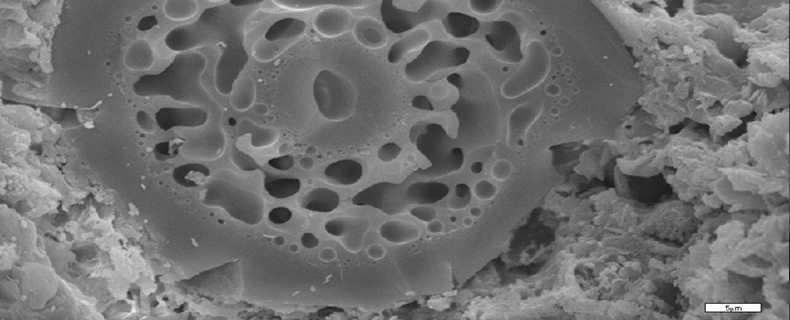| School |
Natural Sciences |
Academic Unit
|
Geology Department |
Level of Studies
|
Undergraduate |
Course Code
|
Geol_011 |
| Εξάμηνο σπουδών |
2ο |
Course Title
|
Geomorphology |
Independent Teaching Activities
|
Lectures, laboratory work, Feldwork |
Weekly Teaching Hours
|
2 (lect.), 1 (lab.) |
| Credits |
4 |
Course Type
|
Special background, Skill development |
Prerequisite Courses
|
|
Language of Instruction & Examinations
|
Greek |
Is the Course offered to Erasmus Students
|
Yes (in English and Italian) |
| Course Web-Page (URL) |
https://eclass.upatras.gr/courses/GEO365/ |
Learning Outcomes
|
Geomorphology (from Ancient Greek: γῆ, gê, "earth"; μορφή, morphḗ, "form"; and λόγος, lógos, "study") is the scientific study of the origin and evolution of topographic and bathymetric features created by physical, chemical or biological processes operating at or
near the Earth's surface.
The course is a basic part of Earth sciences and its’ purpose is the systematic study of morphological and evolutional processes that form the Earth’s surface in time.
The aim of this subject is to introduce to the students the basic principles and methodology of the landforms creation and evolution. The major morphogenetic processes that contribute to the formation of the earth’s surface are analyzed, along with the morphogenetic environments in which these processes act.
Finally, the course aims at the thorough understanding of the importance of the evolution and landform creation processes, through the analysis of the major methods and techniques followed during geomorphological research.
Upon successful completion of this course the students will be able to:
- Analyze and interpret the evolution and creation of landforms, morphogenetic processes and their classification
- Study the genesis and evolution of landforms that are closely linked to the prevailing physical, chemical, geological and biological processes that take place on the earth’s surface in order to be able to contribute to the creation and establishment of conceptual models.
- Develop their skills into processing, recording and presenting various relevant subjects, individually or in grups.
|
General Competences
|
- Search, analyze and synthesize data and information, using the necessary technologies.
- Decision making.
- Independent work.
- Group work.
- Working in an international environment.
- Respect the environment.
- Criticism and self-criticism.
- 8. Promoting free and creative thinking.
|
| Syllabus |
- Basic principles of geomorphology. Meaning and evolution of primary landforms, endogenous and exogenous processes.
- Control of landform factors, directions and methods of studying.
- Relation between morphology and geological structure, types of sedimentary rocks.
- Rift processes and the value of neotectonics on the earth’s surface.
- Mass movement.
- Climate effect on geomorphic processes and fluvial networks.
- Fluvial morphology
- Glacial and periglacial morphology.
- Conceptual models.
|
| Delivery |
In-class lectures, practical lab courses. Exercises and lab courses with the use of topographic maps and aerial photos. |
Use of Information & Communication Technology
|
- Learning procedure support with the use of e-class platform.
- Multimedia use and PowerPoint presentations
|
Teaching Methods
|
| Activity |
Semester workload |
| Lectures |
2×13=26 |
| Practical Lab Courses that focus on the application of methodologies and case studies. Taught in smaller groups of students. |
2×13=26 |
| Fieldwork |
8 |
| Individual studying |
6×8=48 |
| Total number of hours for the Course |
108 |
|
Student Performance Evaluation
|
Written final examination that will include:
- Multiple choice questions
- Problem solving questions
- Comparative evaluation of lecture data
- Exercises practiced in lab courses
Presentations of independent and group work. |
Attached Bibliography
|
- Lecture notes uploaded on E-Class
- Konstantinos Vouvalidis, Physical Geography Disigma Pubs., 2011.
|






























